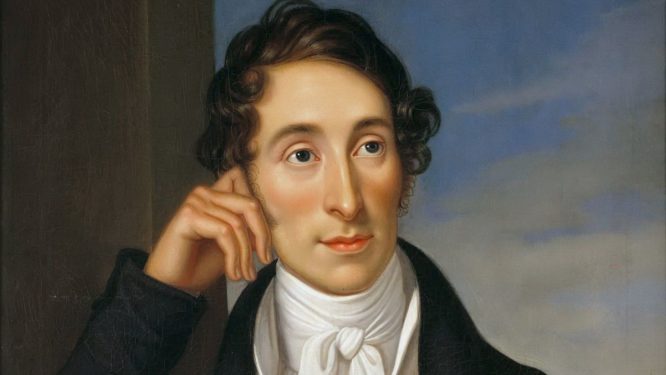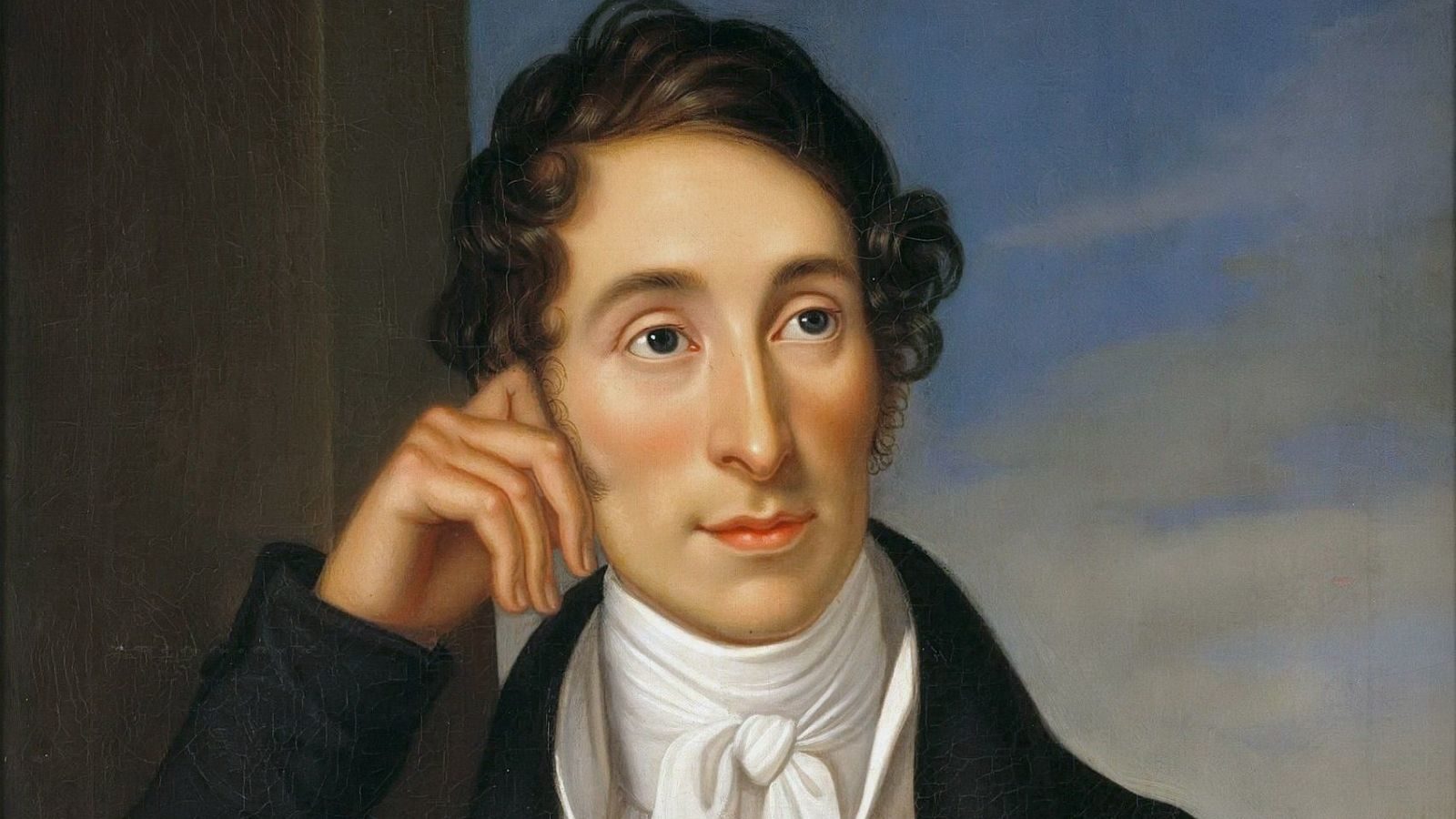Carl Maria von Weber

DATES
Born November 18, 1786 in Eutin, Germany
Died June 5, 1826 in London, England
NATIONALITY
German
STYLE/PERIOD
Romantic 1820-1910
FAMOUS WORKS
Operas: Der Freischütz, Euryanthe, and Oberon
Orchestral: Clarinet concertos, Konzertstück in F minor for Piano and Orchestra

BIOGRAPHY
Carl Maria Friedrich Ernst von Weber was a conductor, pianist, guitarist, critic, and one of the first significant composers of the Romantic school. He was born in Germany, in 1786 to a very famous, musical family. He was a very weak child, born with a damaged hip that would cause him to limp for his entire life. Weber learned to play piano while traveling with his father’s theater company. He took lessons from his half-brother, Fridolin, while on the road, and from local teachers wherever the company paused. Despite the unusual lessons, Weber quickly became a brilliant pianist. Because of a strange, long thumb, he was able to play notes that were very far apart!
In 1810, at the age of 23, Carl announced that he was “born for the second time.” A restless and charming young man, he traveled all over Europe, studying music with famous teachers (including Joseph Haydn‘s younger brother, Michael) wherever he went.
During Weber’s career, he served as the Music Director of opera houses in Breslau, Prague, and Dresden. He worked hard to improve the quality of opera in each of these cities by employing bigger orchestras, performing more challenging repertoire, and seeking out fresh singers. Weber wanted musicians and audience members to appreciate German opera as much as they appreciated Italian opera, and he wrote many of his own, including Der Freischütz, Euryanthe, and Oberon. Weber’s operas, as well as his other works, are distinguished by their brilliant orchestration. In fact, the famous French composer Claude Debussy remarked that the sound of the Weber orchestra was obtained “through the scrutiny of the soul of each instrument.”
Weber was one of the very first conductors to use a baton (although he held it in the middle instead of at the end, like conductors do today). He loved conducting, and audiences often remarked on how excited he became during performances!
Weber suffered from tuberculosis the last three years of his life, dying on June 5, 1826. He is best remembered for his wonderful, virtuosic compositions for clarinet and for setting the standard for German romantic operas. His music inspired many later composers, such as Wagner, Berlioz, Mahler, Hindemith, and Debussy.